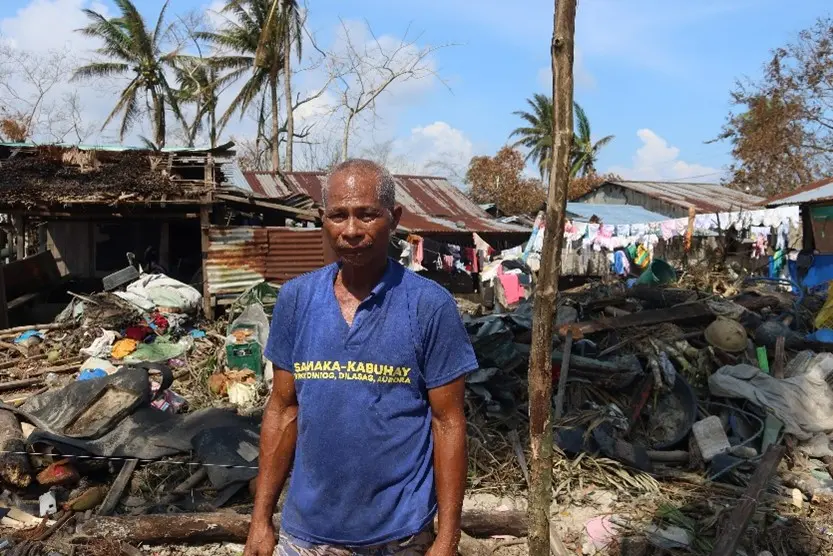
As severe weather disasters increase, leaders at COP30 must take action
Typhoon-hit communities in the Philippines face severe food shortages in the coming days and weeks with authorities and aid agencies working to avert widespread hunger, Islamic Relief’s emergency response team is warning.
Typhoon Fung-wong has forced over 1.1 million people from their homes and devastated agriculture, and Islamic Relief’s emergency team in Aurora province says most families have lost their main sources of income and food. Islamic Relief aid workers estimate that over 96% of banana crops in the areas they have reached have been destroyed and fishermen cannot go out to sea.
Ronald Cabalquinto, part of Islamic Relief’s emergency response team, says:
“The devastation we’re seeing is beyond previous typhoons. The water reached the height of a two-storey building and many houses near the coast have been totally washed away. There is debris everywhere. The death toll is not high, but hundreds of thousands of displaced people are now dependent on aid and only have food for two or three days. Many people have been taken in by relatives, friends and neighbours but we have also seen families at the side of the road under tarpaulins with nowhere to go.”
Sabilyo, 57, a fisherman in Aurora province, told Islamic Relief: “My family’s only source of income, our boat, was split in half by the storm’s fierce winds and waves. I don’t know where to start. My house is washed out, and my boat is gone. I just hope someone can help us start again.”
Aid agencies and the Philippines government have distributed food packs to displaced families, but they will run out in the next few days and more aid is urgently needed.
The typhoon struck on the eve of the COP30 climate change summit taking place in Brazil and Islamic Relief says the climate crisis is increasing the severity and frequency of natural disasters, hitting the poorest communities hardest. The Philippines suffered record numbers of typhoons and storms last year.
Ronald Cabalquinto says: “In the Philippines typhoons are part of island life. But these storms have been hitting more of the islands and provinces at once and causing greater destruction than they used to. It is vital that world leaders at COP30 fulfil commitments to bring emissions and global warming to a contained level.”
Investing in early warnings and helping communities adapt to the changing climate can help save lives. In Aurora province the initial death toll from Typhoon Fung-wong was zero, thanks largely to a government warning to evacuate.



